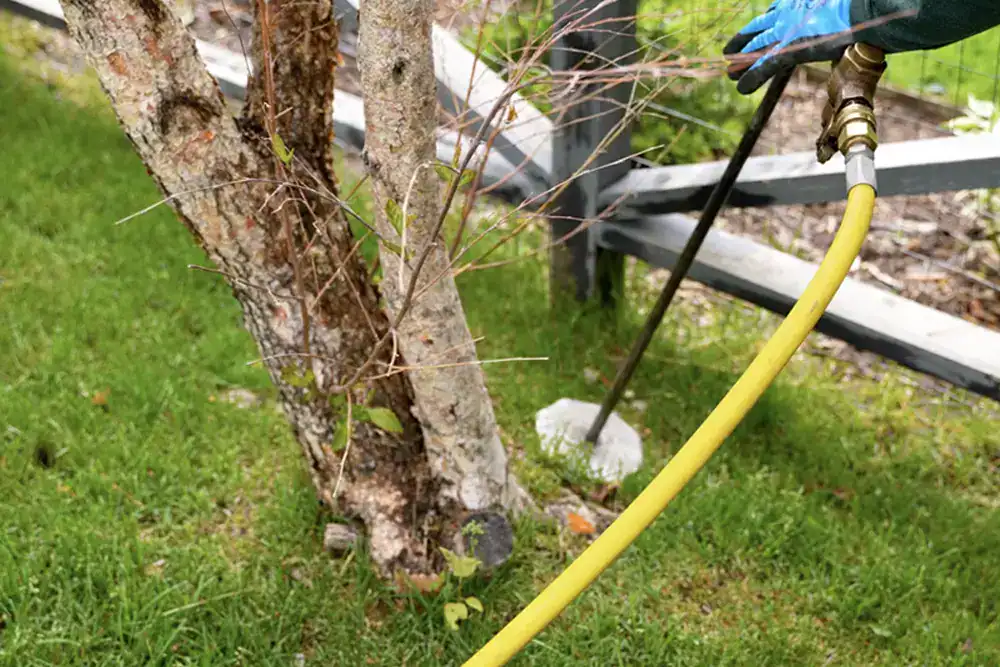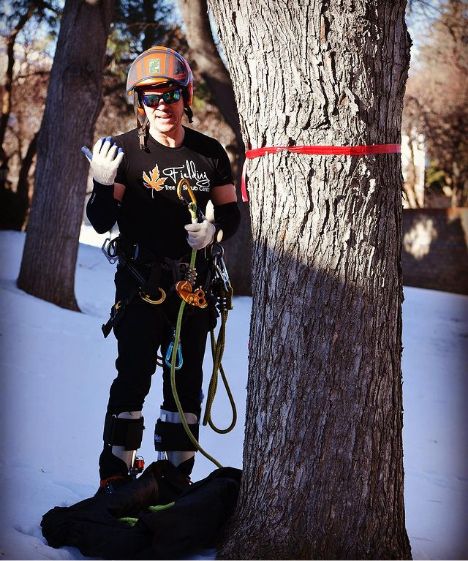What is the IPS beetle?
The IPS beetle is a small, wood-boring beetle that attacks a variety of evergreen trees. Also known as the engraver beetle, they are dark, reddish-brown in color, and feed on the phloem of wood. They mark and carve the wood as they feed, hence the name engraver beetle. They are small in size measuring only about 1/8 to 3/8 in long.
What types of trees do IPS beetles like to attack?
Interestingly, IPS beetles attack with discretion and are known to go after native species. Some of their favorite species to eat include:
- Blue Spruce
- Englemann Spruce
- Ponderosa Pine
- Pinyon Pine
- Concolor/Noble Fir
- Subalpine Fir
Due to the population explosion in the Denver Metro area, the IPS Beetle have been found attacking other pine trees as well, including popular Austrian and Scotch species.
What are some signs of IPS beetle infestation?
Here are some telltale signs and symptoms:
- Rapid fading on the top or whole tree in the spring, summer and/or early fall.
- Exit holes that are small and round in the trunk of the tree may reveal that the IPS beetle has moved on, either to a different part of the tree, or neighboring tree.
- Reddish boring dust at the base of the tree or on the bark crevices.
- Woodpecker feeding marks on the main trunk of the tree and large branches.
Occasionally, the symptoms of IPS tree infection are not always clear, and can easily be confused with signs of other bugs and wildlife.
Is my evergreen tree at risk?
The growing number of IPS beetles in the Denver Metro area is concerning, and your evergreen trees could be vulnerable to attack.
Presently, there are eleven species native to the area. IPS beetles are spreading more rapidly than other pests because they can withstand the cold winter temperatures and have 2-4 generations per year.
The beetles are active from early March all the way through November and will move on to nearby evergreen trees when they are done feeding.
What can I do to protect my evergreen trees?
The best case scenario is that the IPS beetle has not gotten to your trees yet. The IPS beetle preys on trees that are weak and cannot defend themselves against attack.
Healthy trees will be able to fight off the IPS beetle and other pests when they are properly cared for, healthy, and thriving.You can strengthen your trees’ defensive systems with these proactive steps:
- Preventative pruning
- Fertilization
- Consistent watering
- Professional trunk and soil injections
For the best IPS beetle treatment, you need accurate and timely information. When in doubt, consult with a certified arborist.






